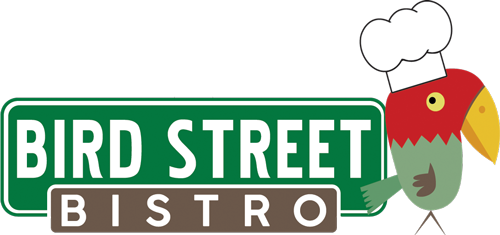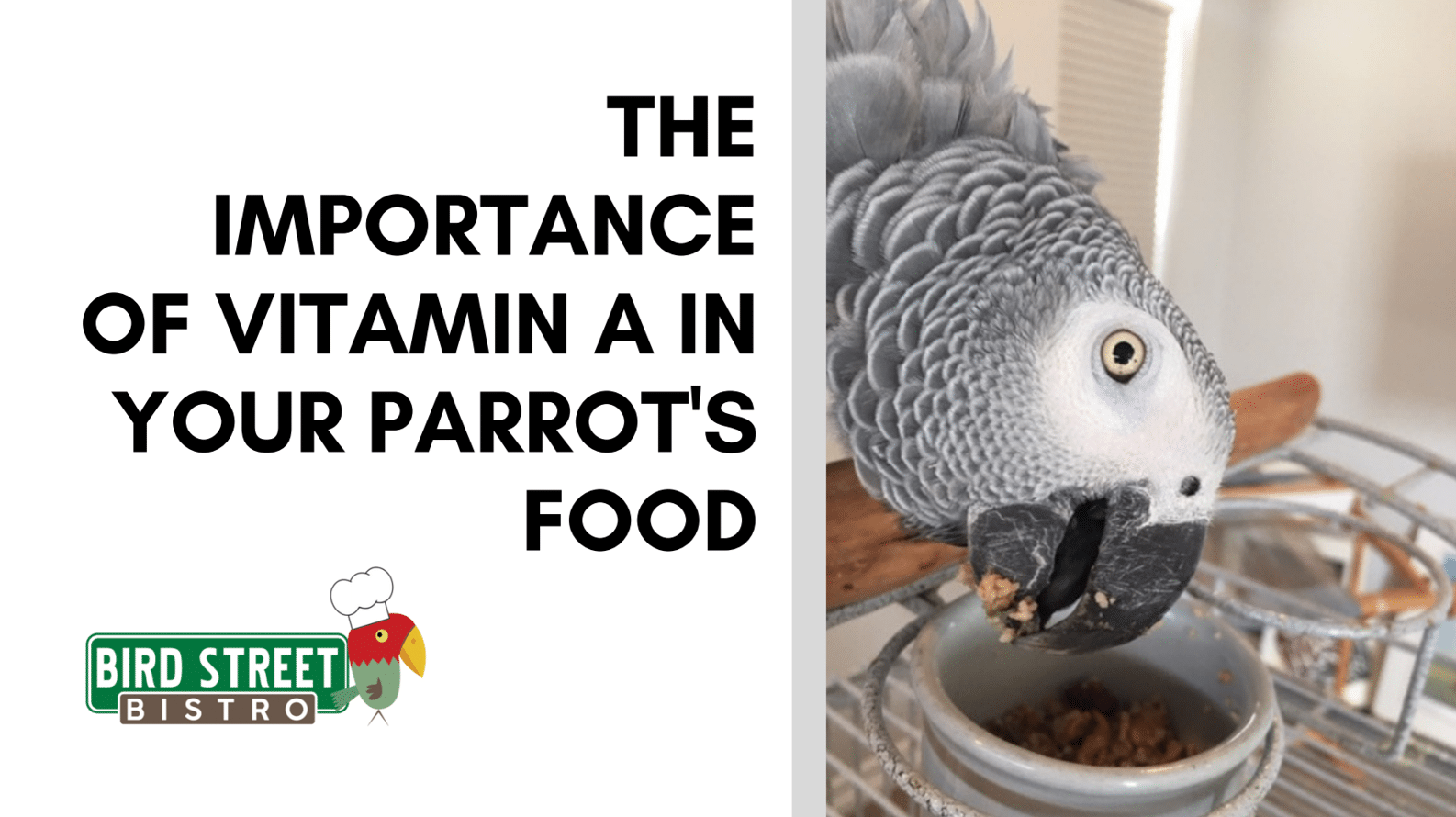The Importance Of Vitamin A In Your Parrot's Food
Diet, minerals, and vitamins in your parrot's food, is indubitably one of the most important factors in keeping your bird healthy. Attention, care, and love are very important as well. We are fortunate that in the last few decades bird parents, researchers and avian veterinarians have learned more about parrots’ nutritional needs and how a captive bird’s diet differs from a wild one. In a previous blog post “What Food Should I Feed My Parrot” we covered how a seed only diet is high in fat and lacks many vitamins our feathered friends need. This is especially true for vitamin A. A seed diet that also includes vegetables is an improvement; however, it is still high in fat that a captive bird, unlike its wild bird counterpart, would store – this is not healthy. Vitamin A is a fat-soluble vitamin that also acts as an antioxidant. For birds, it is very important and helpful in the growth and repair of tissues, the proper function of the eyes, hearing, bones, and mucous membranes. Unfortunately, this vitamin is not found in seeds; however, one can find it in many fruits and vegetables like carrots, kelp, sweet potatoes and mangoes. Today we visit the importance of vitamin A in our feathered friends’ food and what we should keep a lookout to spot vitamin A deficiencies.
Why is vitamin A important to our feathered friends?
A deficiency in Vitamin A, called "hypovitaminosis A", is all too common and potentially lethal when birds have a seed only diet. This is usually the type of malnourishment that weakens our beloved feathered friends, making them more vulnerable to fungal, viral, and bacterial infections. If a bird is not treating adequately, these conditions can lead to death. But not to worry, all of this is easily preventable in companion birds if they are fed fruits and vegetables high in Vitamin A.How do we get to Vitamin A deficiency to Sickness?
As we all know, birds can easily get sick if we’re not careful. As bird parents, we have to make sure we follow all the rules in parrot care and schedule annual vet visits for preventative measures, not just reactive.What are the signs of hypovitaminosis A?
Check your bird for small white patches in the mouth and on the tongue. If an infection develops these plaques, small white patches, begin to swell and abscess, eventually becoming so painful the bird will stop eating. Depending on how large they become, they have the potential to block the choanae (openings found at the back of the nasal passage). If this happens, you will notice open-mouth breathing. This can get worse from here and we don’t have to go into many details except that you have to go to your avian vet.Not sure you want to go to the vet yet?
Other symptoms can range from obvious to not so obvious. Remember that these signs do not develop suddenly, but happen over several weeks to months. These include any of the following: wheezing, sneezing, nasal discharge, nostrils are either crusted or plugged. Lethargy, depression, diarrhea, egg binding and dystocia, tail-bobbing, lack of appetite, severe weight loss, poor feather color, swollen eyes, ocular discharge, gagging, bad-smelling breath. These signs are of a very sick parrot that needs immediate attention so please keep a lookout for these.What is the treatment of hypovitaminosis A?
Vitamin A supplementation will need to begin immediately. Secondary to the lack of Vitamin A is the most threatening condition of microbial infection. If an infection arises one has an avian vet treat it immediately and aggressively. If precautions are taking early in the process of infection and it diagnoses and treats early. The parrot’s illness can usually cure without any lasting effects. The parrot may need to hospitalize for some time to receive specialized medical care. Your veterinarian may use an incubator or nebulizer. And the bird may also need to be tube-fed and given injections. The importance of a proper diet, and vitamins in your parrot's food, in preventing hypovitaminosis A cannot be understated. Seeds should only make up approximately 10-20% of the diet. Depending on the species. Fresh fruits and vegetables should provide 40-60% of the diet of most birds. Birds, however, do not respond well to sudden changes in the diet. Especially older, matured birds, that are set in their ways. If a bird is currently being fed mostly seeds, introduce new items slowly. Follow some of our tips on how to introduce healthy food to your parrot. Bird Street Bistro foods incorporate some of the richest sources of Vitamin A and other vital vitamins in your parrot's food – Carrots, Mango, Kelp, Lentils, and Parsley.
bird street bistro,
healthy parrots,
parrot food,
parrot vitamins
- Choosing a selection results in a full page refresh.
- Press the space key then arrow keys to make a selection.


